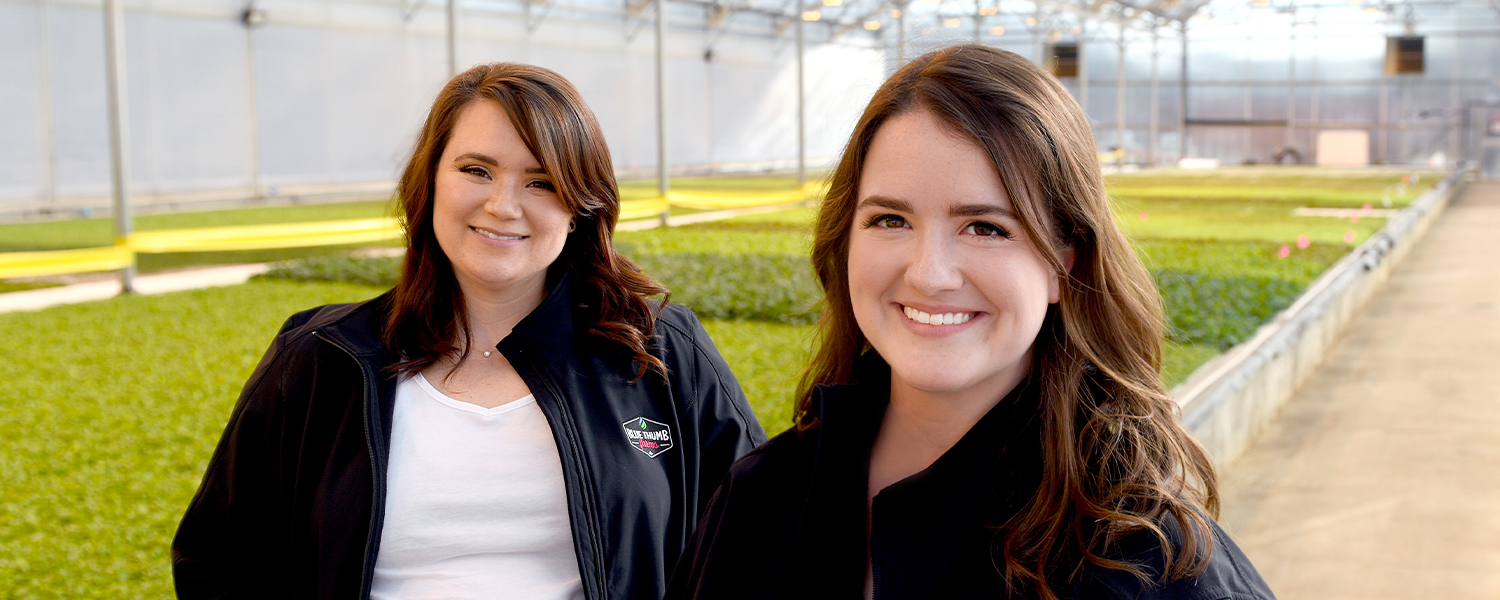
Aquaculture Inspires a Fresh Approach for Produce Farm
Two scientists turned farmers are bringing salad greens to the Research Triangle year-round with their state-of-the-art hydroponic farm. 2016 CALS graduates Mary Cove (above, left) and Allison Culbreth, co-owners of Blue Thumb Farms in Zebulon, strive to provide local, delicious and environmentally sustainable produce.
The self-taught farmers met while pursuing master’s degrees in applied ecology at NC State. Working on aquaculture projects to raise fish, the two quickly formed a friendship and, in spring 2017, a grand plan.
“We realized that the only lettuce we could buy at our grocery stores was shipped from California or Arizona,” Culbreth says. “From our work at the Fish Barn, we knew how to operate hydroponic systems. Hydroponics is the farming of the future, now.”
Following a year of intensive work, they opened Blue Thumb Farms (a nod to their roots in aquaculture). Located 15 miles southeast of Raleigh, Blue Thumb produces thousands of packages of baby iceberg, arugula, kale, romaine and other greens each week.
We’re finding out things that other farms don’t know about, enabling us to grow superior products and make people happy.
Hydroponic Know-How
The growing process starts in the headhouse where the two farmers seed plants for germination. Baby greens and herbs go into greenhouse beds on large Styrofoam rafts. Seedlings are lightly misted and left untouched for 20 days, drawing all their nutrients from the waterbed.
Growers rely on a precise blend of nutrients and constant water sampling to pinpoint what plants need. To keep plant roots healthy, water from the beds circulates through the headhouse where it’s ozonated every four hours.
“The ozone gas zaps anything that may be growing in the water that shouldn’t be and adds a lot of oxygen, which keeps the plants healthy,” Culbreth says.
A ventilation system monitors the greenhouse temperature, releasing trapped air and creating a cross-breeze when it gets too warm or turning on heaters when the temperature drops.
“The beauty of our farming is that by default it’s clean,” Cove says. “It’s protected from the elements, pesticide-free, non-GMO. We don’t have wildlife coming through our crops like terrestrial farms, and we have a strict food safety protocol, meaning that the products are only touched by our team with gloved hands at the very end of the growing cycle when we package them.”
Culbreth, Cove and their team harvest, pack and deliver the produce within 24 hours.
Pandemic Impact
Blue Thumb’s stringent food safety system served them well when the COVID-19 pandemic hit North Carolina.
“Our protocols were already very strict, but now we wear masks for every activity that is closer than six feet in the greenhouse, and all delivery drivers wear masks and gloves and they constantly sanitize everything,” Cove says. “We’re a little family here, so keeping our employees safe is really important to us.”
Blue Thumb also increased partnerships with home delivery companies, including The Produce Box.
“Because we’re an essential business, we offered employment continuously to all our employees, hired another person for our team and added a second delivery vehicle, a 16-foot box truck,” Culbreth says. “Our business shifted a little, but we were still able to expand.”
In the midst of all the change, Cove was a new mother. Her daughter was born in early February.
“Spending any time away from her is tough, but I’m proud to continue working on something I really care about. It’s about a future for her also,” Cove says. “Because of the pandemic, my husband is working from home and able to be with her, which has been fortunate and a silver lining to all this.”
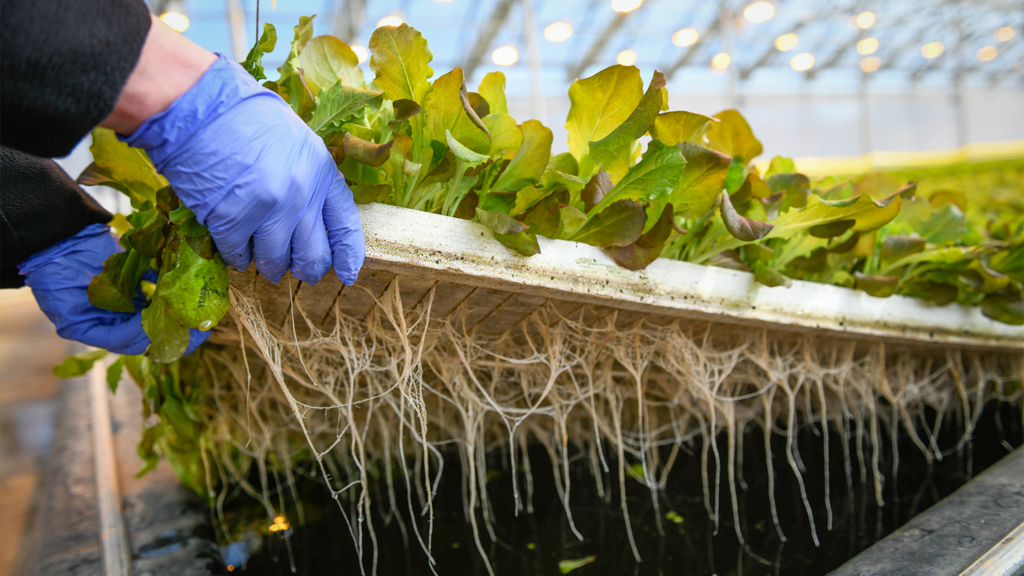
Science-Driven Sustainability
Research backgrounds enable the business partners to make Blue Thumb more efficient and environmentally friendly.
“We are constantly collecting data because we’re super-focused on science and sustainability. They go hand-in-hand here,” Cove says. “Our farming uses 90% to 95% less water than the same product grown in the ground.”
Using a greenhouse reduces growing time and energy use, while selling locally saves fuel. Blue Thumb is committed to being waste-conscious at every step, from seeding to order to packing in recyclable containers.
Both Cove and Culbreth value what they learned at NC State.
“I walked away from my master’s with the ability to problem-solve and troubleshoot, not give up and keep my cool,” Cove says. “I did not know that I was going to need to be a salesperson, an accountant, a plumber and a farmer all in the same day, but I learned at NC State that there is always a solution somewhere, and we can figure it out.”
Culbreth agrees. “Having a research background has made all the difference. We’re finding out things that other farms don’t know about, enabling us to grow superior products and make people happy.”
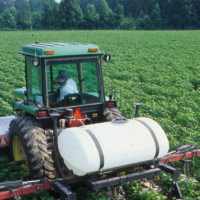
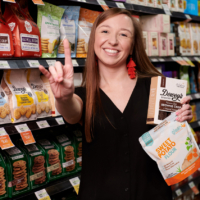
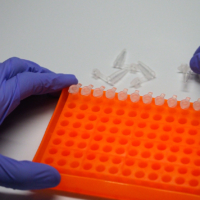
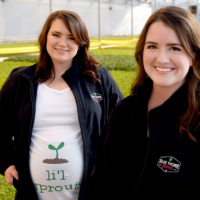
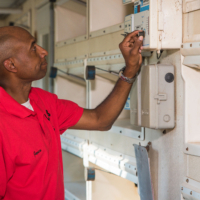

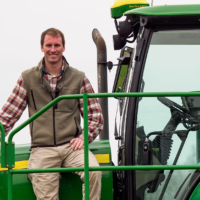

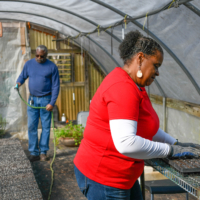
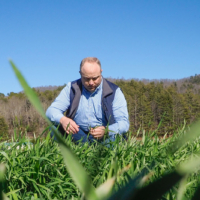
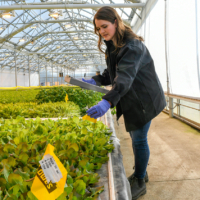
Awesome accomplishment by NCSU grads!